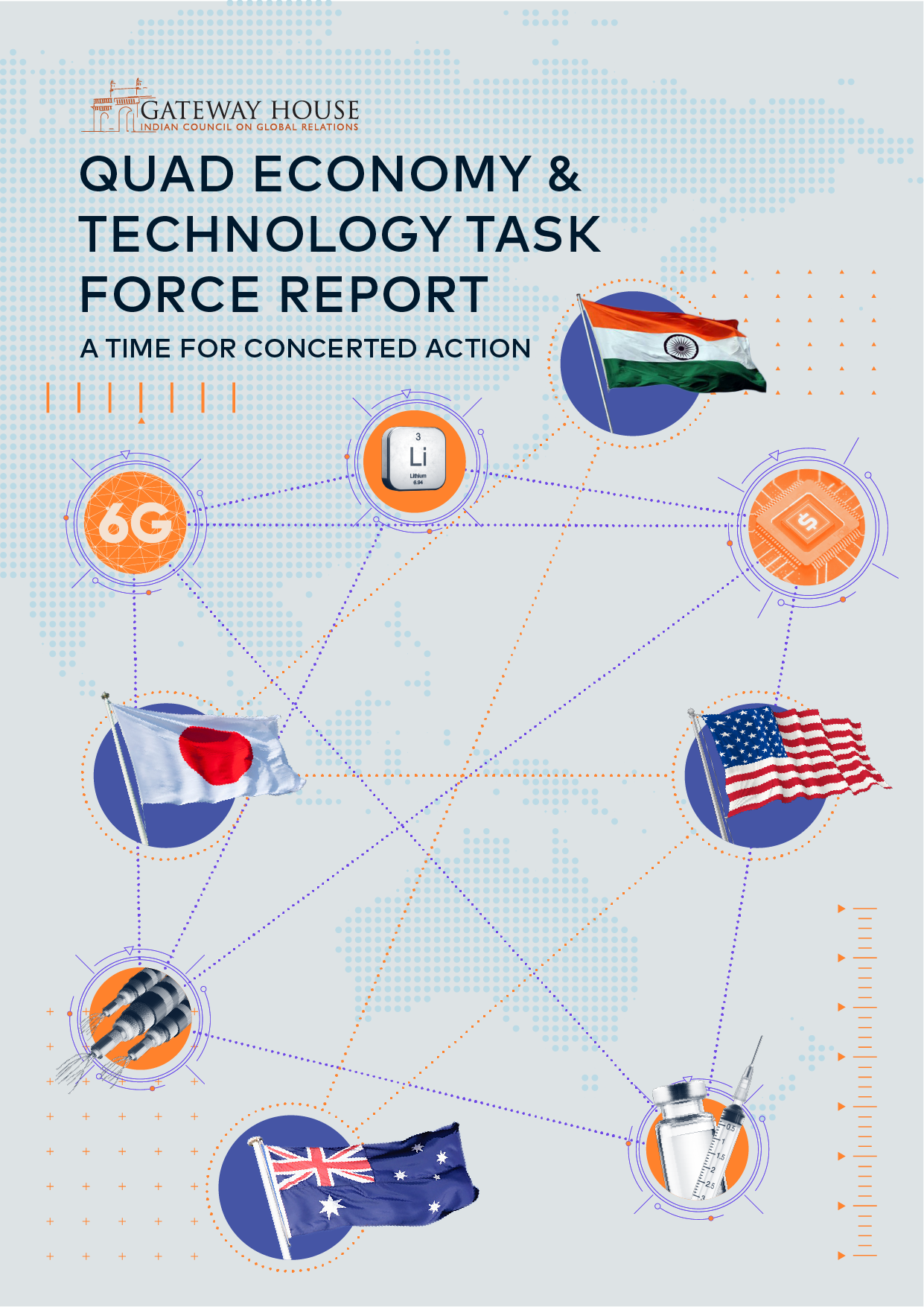The Quadrilateral Security Dialogue, or Quad, is evolving from a maritime security grouping for the Indo-Pacific into a long-term strategic partnership with a wide spectrum of shared values and principles, a common world view, and vital interests that are in alignment. This evolution is possible because, beyond defence, the four democracies that comprise the group – Australia, India, Japan, the U.S. – have more to offer each other and the region. All four have complementary strengths in technology, healthcare and finance – areas that will shape future economic and social development. The unique mix of the group – three developed and one developing nation, three Pacific and one Indian Ocean nation, three producer-trading nations with one massive emerging market – lends itself to innovation, experimentation and cooperation that can be a template for a new, post-pandemic geopolitical era.
Why not add an economic and technological dimension to the Quad’s mission, and put its powerful matrix to work? Why should this strategic partnership not be glued with the pragmatism of business and the ideas born of entrepreneurship?
The idea germinated at Gateway House, Mumbai, in 2019. Conversations with industry executives, technology experts, venture funders, financiers and diplomats from the four countries over six months made clear that everyone wanted to enhance the Quad. As Covid-19 took root in 2020, the importance of the Quad became apparent, as did the urgency of putting collective economic and technological knowledge to best use for the immediate- and the long-term. A series of exploratory conversations led to planning for a Task Force. In May 2020, the Gateway House team identified five areas ripe for economic and technological cooperation among the Quad nations, along with experts in the four Quad countries from industry, academia, politics, the strategic community and government.
Dr. Lisa Curtis, Director of Indo-Pacific Security at the Centre for New American Security, and Dr. Surjit Bhalla, executive director for India, International Monetary Fund, were named co-chairs. Stressing the urgency of building a coalition of economic interests with technological transparency, both led the Task Force with enthusiasm. The Task Force’s first meeting was held virtually on March 23, 2021 – boosted by the first virtual summit of the Quad leaders held on March 12. After five months, the Task Force has been able to publish its findings, available in this report.
The Task Force has taken on the study of cutting-edge subjects – emerging technologies, space, creation of new products, new standards and new supply chains essential for the future. Through multiple meetings across four time zones, members used their knowledge and their networks to bring to this report a rich understanding of the subjects. The outcome is a blueprint for cooperation among the Quad’s members on pressing immediate-term issues and on development of plans for long-term engagement. The recommendations are not just intended for the consideration of the four governments, but for all democratic stakeholders, including business, the technology world, media and academia. We hope all will use the findings of this report to prepare to face the challenges before us.


